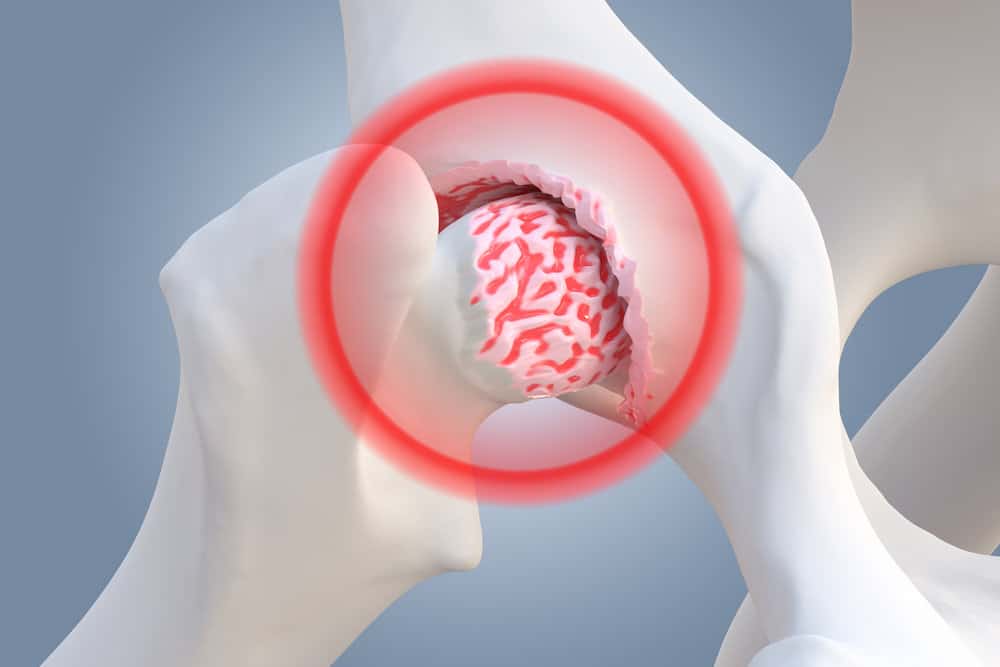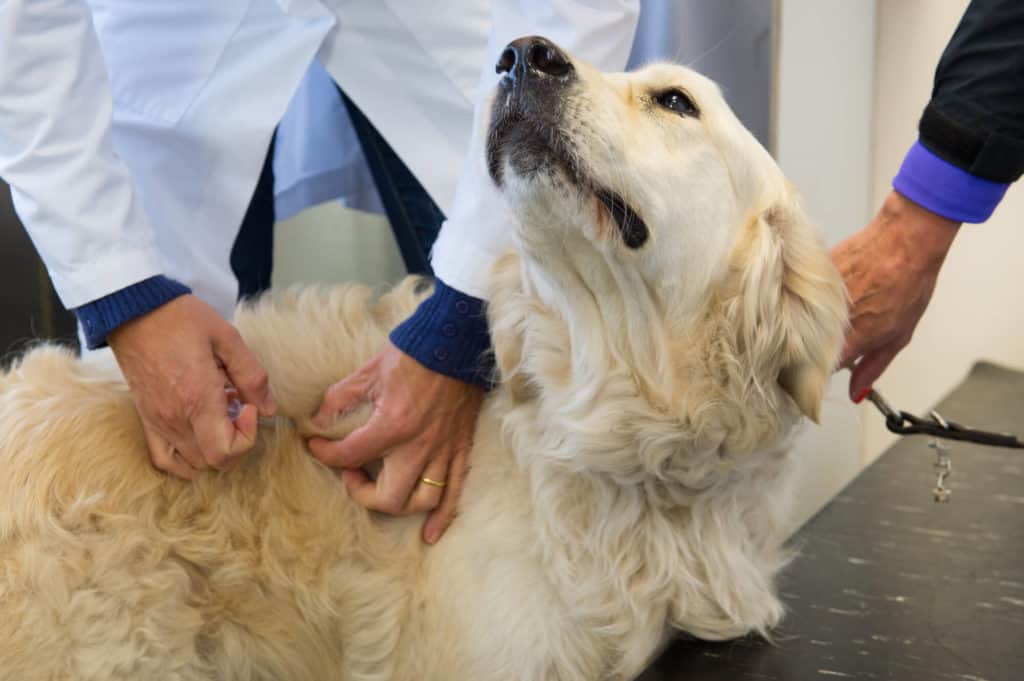Several reasons can cause puppy legs to shake and tremble. It can be a sign of feeling stressed or cold, or excitement or fear, or it might just be that your puppy is trying to get comfortable while sitting.
Leg shaking can also be out of pain or an underlying medical condition like neurological diseases and joint and bone diseases. What’s more, your puppy’s legs can shake when sitting because he’s weak, either from malnourishment or obesity.
We know you've got a hundred dark scenarios about your puppy's condition, so we're here to relieve your worries.
In this article, we’ll elaborate on some of the most common reasons behind this shaking condition.
13 Causes for Your Puppy’s Front Legs Shaking

Before worrying, it’s important to know that shaking is usually a part of dog behavior.
However, if your puppy’s trembling persists, especially if it’s hindering his movement, that can be a sign of a problem.
Let’s dig deeper into the multiple issues that may cause puppy legs to shake when sitting.
1. Stress
Your puppy might be stressing out in response to some recent changes in his environment. To reduce any stress factors, try to review any changes you've recently made.
Did you move your puppy's crate to another room? Or have you moved into a different neighborhood altogether?
Even the smallest thing can affect your pup, like thunder or the sound of a car backfiring.
Other reasons can be more serious. For example, if you move next to a noisy highway, your puppy might have difficulty adjusting to the traffic.
In any case, if you realize your puppy's shaking is associated with a certain condition, try your best to eliminate it. In the meantime, offer some cuddles, comfort food, or chewing toys to ease his anxiety.
2. Feeling Cold

Shivering is among a dozen visible indications that your dog is feeling cold.
Just because dogs are furry doesn't mean they're resistant to cold weather. This is particularly true because of inherent traits or when your dog's breed is native to warmer regions.
For instance, Chihuahuas are more likely to shiver in the colder season due to their smaller body mass.
Even more interesting are Bulldogs. They may be huge, but they still can't tolerate extreme winter temperatures because of their unique body structure.
All things considered, check your dog breed's winter tolerance and ensure you support them with extra layers of clothing. It might also be a good idea to let them sleep in a warm room when temperatures drop drastically.
3. Natural Response to Different Emotions
Emotions can stimulate different physical responses in your puppy. That’s why it's important to observe your puppy’s legs for repeated shaking to know whether the trembling is an alarming sign or only incidental.
Excitement
You might have noticed your puppy doing all sorts of shaking and tail wagging when it’s time to eat.
Usually, puppies shake out of excitement and it’s a normal physical reaction. So don’t worry if your little pup’s legs shake when he’s overwhelmed with happiness; it’s a part of normal behavior.
Fear and Anxiety
Fear and anxiety can also make your puppy’s legs quiver, whether he’s standing or sitting.
While the trembling itself won’t harm your puppy, you should try to figure out the reason behind the fear.
It could be a thunderstorm or loud household appliances that are scaring him, so make sure to reassure your puppy when that happens.
Helpful Dog Training Resource:
For help with training your dog, you should take a look at The Online Dog Trainer by Doggy Dan. Doggy Dan is an expert Dog Trainer based in New Zealand. His online resource contains Hundreds of Excellent Dog Training Videos that will take you step-by-step through the process of developing a healthy, happy well-behaved dog.
4. Obesity

Obesity can cause many health issues to your puppy, including joint and back problems. Mainly, your puppy may gain weight because he eats more calories and doesn't exercise enough.
As a result, the muscles may not be strong. That makes it harder for leg muscles to support the extra weight, causing your puppy’s legs to shake when sitting.
That’s why it’s crucial to watch your puppy's diet and exercise him daily to ensure he’s healthy.
5. Being Underweight
Just like obesity, being underweight can also impact your puppy’s health. If your puppy is skinny or isn’t getting the required nutrition, he might suffer from fatigue, inflammation, and other illnesses.
Not only do underweight puppies lose fat, but they also lose muscle mass. Muscles are vital to support joints and overall strength.
Losing muscle mass may cause weakness in your puppy’s legs and cause them to shake when sitting or standing.
6. Physical Injury
Your puppy may start showing leg shaking or weaknesses if he’s had past injuries or accidents without full recovery.
Usually, symptoms from past trauma will affect the same leg. So, if you notice your puppy dragging the injured leg, that can cause it to shake while sitting.
Past accidents aren’t the only cause of leg injuries. Puppies can sprain their joints and strain muscles during exercising, too.
Typical signs of leg sprains and strains include:
- Sudden limping for more than 24 hours
- Pain when touching the injured area
- Swollen joints of muscles
- Loss of appetite
Helpful Dog Health Resource:
Note: Our Health is #1 Priority. It should be no different for your dog. But you need to help him. The Ultimate Guide to Dog Health is the answer. This handy guide will help you recognize the symptoms of the health problems above. Get the knowledge to stay ahead of these terrible issues that can rob your lovely dog from vigor and life. Help your friend make it to 14 yrs+ without pain and suffering.
7. Shaking Puppy Syndrome
Shaking puppy syndrome is a neurological disorder that affects the entire nervous system. It’s a hereditary disorder that’s more prominent in certain dog breeds than others; these include:
Puppies born with shaking puppy syndrome have a thin myelin sheath. Myelin is a layer that surrounds the nerves and transmits nerve impulses to all body parts.
When there are abnormalities in myelin size, the nerve impulses don’t efficiently reach the muscles. This can lead to involuntary muscle contractions or malfunction.
Symptoms of shaking puppy syndrome can appear in puppies as young as two weeks. Your puppy can experience tremors in only one area or the entire body.
Aside from tremors, your puppy may also have the following symptoms:
- Balance and coordination problems
- Walking difficulty
- Wide-based gait
- Violent tremors upon excitement
The good news is that puppies usually recover from shaking syndrome as they grow up. However, they can occasionally get hind leg tremors depending on the severity of the syndrome.
8. Nervous System Conditions
When inspecting a shaking condition, one of the first things that come to a vet‘s mind is that it’s a nervous system condition.
When the nervous system is stressed, your puppy's muscles can't effectively respond to the brain's messages. Thus, they may start to shake uncontrollably.
To accurately define the cause of this stress, you'll need to visit a vet to get a correct diagnosis. If the condition is a result of spinal cord misalignment, it can be corrected with chiropractic care.
Additionally, some nervous diseases, like shaking body syndrome, can cause puppy tremors. Don’t worry, though. Your pup won’t need any medical intervention.
With the proper treatment, he’ll likely recover within a couple of months.
9. Arthritis

Have you noticed your puppy limping, reluctant to exercise, or holding one of his front legs up? He might be suffering from a bone disorder, such as arthritis.
This bone condition is caused by dysplasia, an abnormal bone growth, especially at the joints. Unfortunately, arthritis has to be treated with surgery to prevent further progression.
If your pup is diagnosed with arthritis, the best thing you can do for him is to control his weight with a healthy diet. This will help reduce any excess weight adding stress on the joints and causing further pain.
Additionally, you need to exercise your puppy regularly to strengthen his leg muscles. One of the best exercises for arthritis is swimming because it has less of an impact on the joints.
10. Panosteitis
Panosteitis is another bone disorder that can cause your puppy's legs to shake. It causes sudden lameness in dogs and typically lasts around two to three weeks.
As a result, your puppy might be reluctant to exercise or walk. In addition, your puppy might feel pain if you squeeze the affected bones.
To diagnose panosteitis, your vet will rely on your puppy’s history of sudden lameness besides an x-ray examination.
However, as opposed to arthritis, your puppy won't need to undergo surgery. Panosteitis will resolve with time. Just make sure to give your puppy all of your support as he goes through this painful transition.
To support your puppy, provide high-quality, palatable food to make for their lost appetite. In addition, try to go for fewer walks with your puppy and limit exercise time until he recovers.
Additionally, some vets might recommend pain or anti-inflammatory medications. You can also seek physical therapy or acupuncture to relieve your puppy's pain.
11. Hip Dysplasia
This is another bone condition that’s common in large dog breeds during their puppy days. Hip dysplasia is where the head of the thigh bones doesn’t fit well in the hip joint socket.
Because of the poor head-socket fitting, the hip joint becomes unstable. As a result, a puppy might suffer from chronic pain and have shaky legs.
As the puppy grows, hip dysplasia can progress to osteoarthritis, which is the degeneration of cartilage between the joints. That’ll result in bone-to-bone rubbing, limiting the pup’s movement.
12. Distemper Shot Side Effects

Distemper is a contagious viral infection that’s often fatal. It spreads through coughing and sneezing and affects dogs of all ages.
That’s why almost all puppies take the distemper vaccine. Although it immunizes dogs from fatal viral diseases, it still can cause mild side effects; these include:
- Fever
- Vomiting and diarrhea
- Shivering and shaking
- Lack of energy
- Swollen face
- Loss of appetite
So, if you notice your puppy shivering 24-48 hours after taking a distemper shot, it’s probably the reason for the leg shakes.
13. Over Supplementation
Now that you know your puppy's bone condition can cause shaking, bone supplements might sound like a good solution.
However, recent studies have found that supplements, like calcium and vitamin D, can cause overgrowth in puppies.
The problem is that when puppies grow too fast, they're likely to develop tremors associated with joint and bone problems.
Interestingly, supplement-induced bone overgrowth is related to dysplasia, which we mentioned earlier.
To ensure he gets the required nutrients without supplements, feed your puppy small meals three to four times per day.
We recommend you choose a high-quality puppy food that's properly balanced with essential growth nutrients.
14. BONUS: Other Organ Diseases
Besides the reasons we mentioned above, your puppy's legs might be shaking because of some other indirect condition. Here are three possible causes:

Hypoglycemia
Hypoglycemia, or low blood sugar, can cause your puppy to experience muscle twitching and seizures. Other symptoms of hypoglycemia include lethargy, loss of appetite, and gum discoloration.
Chronic Kidney Failure
If your puppy's kidneys aren't working well, toxins might accumulate inside the body and affect the nerves. Hence, chronic kidney failure can be what’s making your puppy tremble.
Other symptoms of kidney failure in puppies include dehydration, weight loss, and imbalance.
Hyperthyroidism
Hypothyroidism causes the thyroid to produce excess hormones, which might lead to tremors. It’s a relatively rare condition in dogs, but it's more common among pups over four years old.
Still, hypothyroidism can affect puppies born with a pituitary disorder, like pituitary dwarfism.
Addison's Disease
One of the most common symptoms of Addison's disease is intermittent shaking. You'll need your vet's help to get a correct diagnosis.
If your puppy is diagnosed with this disease, you'll have to use lifelong medications to replace the missing adrenal hormones.
No worries, though. With proper treatment, your puppy can live a long, happy life.

Paul has been creating content for the dog niche for many years. The information he shares comes his first hand experience growing up in dog lovers household and then owning multiple dog breeds of his own as an adult. Paul enjoys doing the hard research to collect, analyze and present our dogtemperament.com readers with the best answers to their questions.